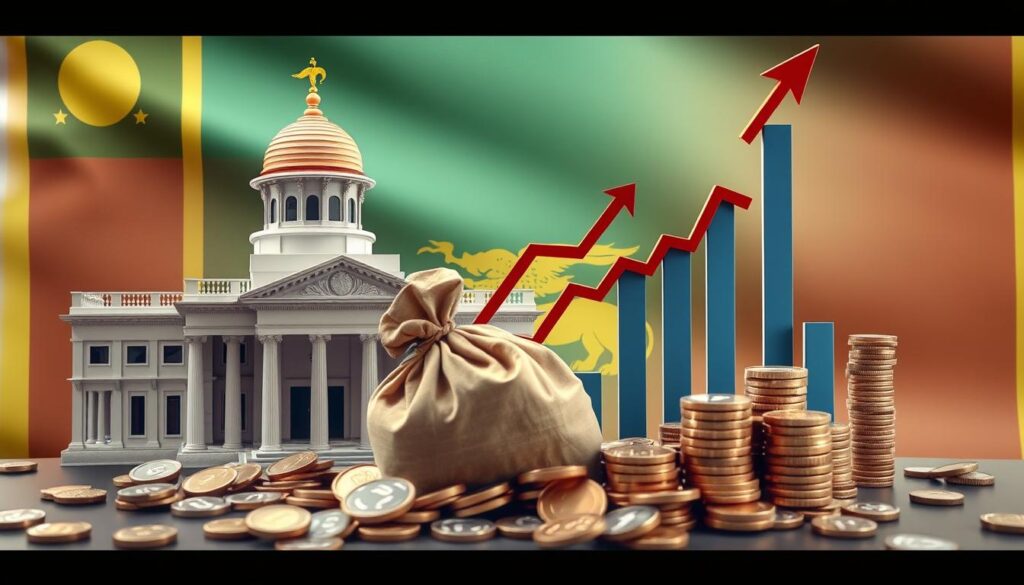Sri Lanka Parliament Dissolved, November Elections Set
A significant development has taken place in Sri Lanka, as announced by OMP Sri Lanka. The Dissolution of Parliament was officially declared. This event occurred just after midnight on September 24th, when the legislative body was dissolved by President Anura Kumara Dissanayake. This is a monumental decision in the country’s history. It paves the way for a crucial election on November 14.
After winning the presidency in an election with high voter turnout, President Dissanayake is moving forward with his agenda. He aims to tackle corruption and economic challenges. The announcement of the Election, after dissolving the parliament, is a key moment. It signals major policy changes and efforts to meet the International Monetary Fund (IMF) bailout terms.
Key Takeaways:
- President Anura Kumara Dissanayake used his power to disband the Parliament. This marks a vital step for Sri Lanka’s governance.
- The upcoming general election on November 14 is a pivotal time for the country’s future.
- President Dissanayake’s election victory showed huge public support, marking a significant change from the 2019 results.
- The previous administration’s economic problems and high inflation highlighted the public’s desire for change.
- Ensuring stability and prosperity are priorities, with plans for tough anti-corruption actions and expanding social welfare.
- Investors are cautious about the financial sustainability regarding the new economic policies announced.
- The position of the Janatha Vimukti Peramuna in the assembly poses a hurdle to achieving majority representation.
President Dissanayake Dissolves Parliament, Calls for November Elections
In a bold move, President Anura Kumara Dissanayake of Sri Lanka has dissolved Parliament. This action marks a significant change in the country’s political scene. Based on Article 70 of the Sri Lankan Constitution and the Parliamentary Elections Act, the President made this decision. Now, Sri Lanka is set for early Elections, sooner than originally planned.
The Exercise of Constitutional Powers by President Anura Kumara Dissanayake
President Dissanayake used his Constitutional powers wisely and legally. By invoking Article 70, he ended the current Parliament’s session. His party had only three seats out of 225. This important step is expected to lead to major changes in Sri Lanka’s government.
Setting the Stage: Article 70, the Constitution and the Parliamentary Elections Act
Sri Lanka’s laws clearly lay out how to dissolve Parliament and organize new elections. The President has this power thanks to Article 70. The Parliamentary Elections Act gives details on election procedures. These rules ensure a fair and democratic election process in Sri Lanka.
Expected Political Realignments and Candidature Announcements
After President Dissanayake’s announcement, many political leaders are getting ready for the elections on November 14. For example, Mahinda Rajapaksa is adjusting his strategy anticipating how voters will react. Harini Amarasuriya, the new Prime Minister, is focusing on issues like youth development, child protection, and gender equality. Her approach could majorly affect the upcoming elections.
President Dissanayake’s decision to dissolve Parliament is stirring up Sri Lanka’s politics. As the country moves towards these important Elections, all eyes are on how these changes will influence Sri Lanka’s future.
Impact of Parliamentary Dissolution on Political Landscape
Sri Lanka’s political scene is changing with the Parliament’s dissolution. President Anura Kumara Dissanayake made this bold move. It shows his dedication to solving longstanding governance problems.
These challenges grew due to economic crises and ongoing instability. This step into a new phase shows hope for better governance.
Timeline of Events Leading to the Dissolution of Parliament
The journey to change began with the National People’s Power alliance’s (NPP) election success. Their rise was helped by the Janatha Aragalaya protests. People were upset with the old system. This led to calling for general elections.
These elections hinted at a major shift in electoral politics. A new chapter for the nation seemed ready to start.
Reactions from Political Parties and Government Officials
The reactions to the Parliament’s dissolution were mixed. Some were worried, while others supported it. Political parties and officials have been vocal about it.
This shows a change in the direction of Sri Lanka’s politics. Everyone is getting ready for the upcoming elections with great interest.
Projections: Shifts in the Balance of Power and Governance
Experts are watching how this will change governance. President Dissanayake is seen as a unique leader. His approach might shift power balances.
This change could bring needed reforms. Especially if it addresses economic and social issues. High voter support for Dissanayake suggests people want this change.
There’s hope for a governance that tackles problems head-on. With Dissanayake’s leadership, Sri Lanka could move towards stability and sustainable growth. This is an exciting time for the country.






